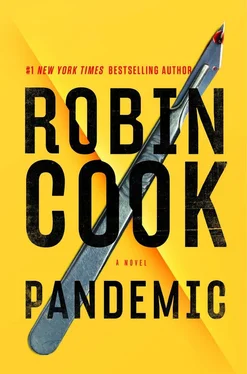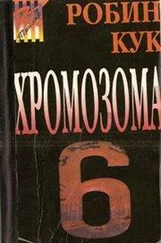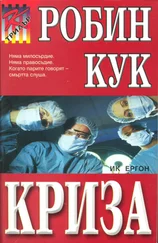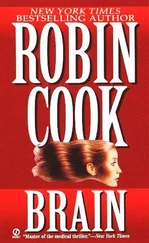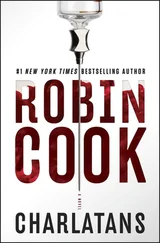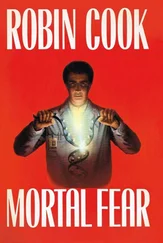“We’ve known something has not been right, but we didn’t want to hear it was autism. She’d been doing fine with her babbling and relating to us and JJ but then started going backward.”
“I hate to admit to my ignorance, but I’m not all that sure what autism is. I’ve heard about it, but I don’t know anyone whose kids have it.”
“You’re not alone,” Jack said. “It’s mysterious. It can cause difficulties for the kid in terms of social interaction and communication. It’s not even a specific diagnosis, as far as I’m concerned. It’s a spectrum thing, with some kids seriously afflicted and others not so much. Even the so-called experts have no idea of the specific underlying pathology.”
“What causes it?”
“There again, nobody really knows.” Jack shook his head. “They talk about environmental factors, genes, and epigenetic factors. It could be some mysterious combination of all three.”
“What the hell are ‘epigenetic factors’? You doctors love to make us normal people feel like idiots.”
“Sorry,” Jack said. “Epigenetic factors refer to inheritable characteristics that don’t depend on the DNA sequence of a gene.”
“Sorry I asked,” Lou said. “Is there any treatment for autism?”
“Not really. There’s a range of behavioral interventions and special-education programs that have some promise but not a lot of evidence-based results. The uncertainty of it all is what’s driving me bananas.”
“How is Laur taking it?”
“In some ways she’s doing better than I, in that she’s taken it on as an intellectual challenge, willing to read everything and anything as the way to deal with it. I’m the opposite. I get almost immediately fed up with the vagueness and wordiness of it all and want to rail against the gods. It’s my surgical personality. But the downside for Laurie is her feeling of guilt. She keeps beating herself up about not having taken a maternity leave sooner, thinking that all the weird chemicals we’re exposed to around here could have played a role.”
“Has that been proven to cause it?”
“No, of course not,” Jack said.
“Then she shouldn’t blame herself,” Lou pointed out.
“Yeah, well, you tell her that,” Jack said. “I’ve been saying the same thing until I’m blue in the face. Besides, I have my own struggles with guilt.”
“How can it be your fault?”
“I’m a total jinx on kids,” Jack said. “You know my daughters from my first marriage were killed in a plane crash, but did you know they were on the plane to begin with because they were on the way back from visiting me when I was training in Chicago? And look at JJ. The poor kid had neuroblastoma as a baby. I wouldn’t want to be my kid.”
“I never thought of you as superstitious,” Lou said.
“I didn’t, either,” Jack said. “But it’s hard to argue with the facts.”
“Talking about JJ, how is he doing?”
“Terrific,” Jack said. “He’s the bright light in all this.”
“How old is he now?”
“Eight and a half,” Jack said. “He’s in the third grade. No sign of a recurrence of his tumor, and you should see him dribble a basketball. The kid’s a natural.”
“Does he get along with Emma?”
“He does. He has the patience of a saint despite Emma’s retrogression. I wish Laurie’s mother, Dorothy, was half as cooperative and understanding.”
“What’s with Laur’s mother? Is she making things worse?”
“Inestimably worse. If it weren’t for her having invited herself to move in during this trying time, I might not be such a wreck. And it’s not just me. She’s driving our live-in nanny just as crazy. You remember Caitlin O’Connell, don’t you? We were lucky to find her after JJ’s kidnapping.”
“That, I’ll never forget. Seems like yesterday.”
“Well, she confided in me that she’s thinking of moving out if Dorothy stays. I’ve tried to talk to Laurie about it, but Laurie has always had trouble dealing with her parents, her father especially, but her mother, too.”
“What’s the mother doing that’s so bad?”
“She’s the one who’s been critical of Laurie not taking a maternity leave as soon as she knew she was pregnant, and she won’t drop it. Plus, she’s a conspiracy theorist of sorts and continues to insist that Laurie and I are to blame for letting Emma get the MMR vaccine.”
“Wait a minute,” Lou said. “Now, that’s something I have heard about. Don’t they think the MMR vaccine causes autism? Did I read that someplace?”
“That was years ago, when there was a medical-journal article that said so,” Jack snapped. “But the study was totally disproved as bogus, and the medical journal that published the article retracted it. Simply put: Vaccines in general and MMR in particular do not cause autism, period, end of story.”
“Okay, okay,” Lou said soothingly. “I didn’t know.”
“Well, sorry to jump on you,” Jack said. “But Dorothy’s attitude about this drives me up the wall. And to think she’s been married to a doctor for most of her life but prefers to listen to her paranoid, conspiracy-minded bridge friends. And, worst of all, she will not shut up about it. Nor will she shut up about autism and neuroblastoma not being in the Montgomery family, meaning both have to be from my family. Well, as far as I know, neither have been in my family, either. Anyway, I’m being driven to distraction. I even asked Warren if I could sleep on his couch.” Warren was one of the neighborhood basketball players with whom Jack had become fast friends.
“I’m sorry about all this, my friend,” Lou said. “Do you want me to try to talk with Laur and see if I can help?”
“I appreciate your heart being in the right place,” Jack said. “But I think you bringing it up will only make things worse. As I said, Laurie has trouble dealing with her parents. It’s just going to have to play itself out — provided Caitlin doesn’t act on her threat, because there is no way Dorothy can take care of Emma on her own. As for me, I have to find something here at work to occupy my mind. I had to do the same when JJ got sick. Luckily, back then I got all steamed up about the dangers of alternative medicine with the chiropractor who killed a young woman with a stupid neck adjustment. I need something like that now.”
“I’ll see if I can rustle up some confusing homicides to tax your skills,” Lou suggested, chuckling. “Like the floater that ended up taking you to Africa.”
“There you go,” Jack said with a smile. “That would be perfect.” He remembered the case very well, along with the trip to Equatorial Guinea. It seemed like yesterday, even though it was going on twenty years ago.
The sudden ringing of Jack’s mobile phone startled both men. Jack had his ringtone on Alarm to make sure he’d hear it when he’d ridden his bike to work that morning and hadn’t returned it to its usual setting. It sounded like a fire truck racing through traffic and was particularly loud as it echoed off the snack room’s cinder-block walls. Jack snapped the phone up, stopped the racket, and looked at the caller ID. It was Dr. Jennifer Hernandez, this week’s on-call medical examiner.
The on-call role rotated among the more junior doctors and included backing up the pathology residents on night call, coming in to the OCME earlier than everyone else to schedule the autopsies involving the cases that had landed during the night, and handling any queries during the day that required a response from a medical examiner. It was busywork for the most part, and Jack had been glad when his seniority exempted him. When calls did come in, they usually were from the in-house MLIs, or medical-legal investigators, whose job was to get the details of all cases referred to the medical examiner. These were all deaths that occurred in an unusual, unexpected, or suspicious manner, including suicide, accident, criminal violence, in custody (like the cases Jack had processed that morning), or merely suddenly when the victim was in apparent good health. The MLIs were very experienced and rarely contacted the on-call medical examiner.
Читать дальше
